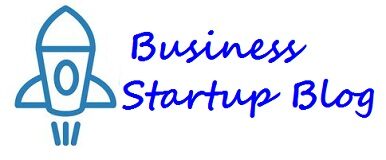
Hello to every small business owner out there! Whether you run a bustling freelance business, a café, or an online gift shop, maintaining order can feel overwhelming, like herding cats. I learned this when I started my online gift shop, fighting an uphill battle with paper spreadsheets and sticky notes before switching to digital solutions. The right software can beat stress and reclaim time. In this article, we’ll cover five essential types of software every small business should utilize, sharing my experiences on how these tools transformed my operations. Ready to ditch the clutter? Let’s go!
Accounting Software: Keep Your Finances in Check
Running taxes with a shoebox full of receipts is one of the most stressful challenges a small business can face, especially during tax season. Accounting software like Xero or QuickBooks handles expenses, invoices, and taxes effortlessly. During my initial journey with the virtual store, manual bookkeeping was painful, but switching to centralized accounting software halved my admin time and simplified tax routing, which previously consumed mountains of effort. Many programs integrate with payment processors, enabling sale tracking without extra labor, especially for automated self-checkouts. Finding ones that sync for real-time transactions is a godsend.
Payroll Software: Be Right on Time for Team Payroll
Updating payroll is a significant task when you have a team. Software like Gusto or Rippling can help manage your employee payroll by performing automatic tax estimations and deductions. When I hired my first part-time employee, I was overwhelmed by payroll complexity until software simplified the process. It streamlined workflows, reminded me of tax filings, and ensured compliance, keeping my assistant content. Some platforms double as HR tools for onboarding, offering multiple functionalities.
Time Tracking Software: Make Every Second Count
In business, tracking time is crucial to avoid losing valuable resources, and the right tools ensure accuracy. With time tracking software like the Controlio app, tracking billable hours and monitoring tasks improves productivity and accountability. After analyzing weeks’ worth of data, I discovered I was spending over half my product sourcing hours on social media. Refocusing on high-priority items optimized my efforts. For teams, clear visibility ensures equitable workload allocation, boosting teamwork. Case studies show prioritizing self-service systems expedites processes, reallocating effort to essentials and improving net gains.
Customer Relationship Management Systems (CRMs): Strengthening Connections
Your customers drive your business, and CRM software like HubSpot or Zoho sustains those relationships. These tools automate follow-ups, track interactions, and collect data. I once lost a client due to a missed follow-up; a CRM would’ve flagged that lead. Now, my CRM sends personalized email reminders and analyzes buying patterns, boosting repeat sales by 15%. Choose a CRM that integrates with your email and social platforms.
Project Management Apps: Complete Your Tasks
Without a system, managing multiple projects risks missing deadlines. Tools like Trello or Asana streamline tasks and deadlines. During my holiday gift campaign, my management tool synced shipping, marketing, and design seamlessly. Mobile-friendly versions allow progress tracking anywhere, adding convenience.
Why the Right Software Is Essential for Small Businesses
Finding the proper software isn’t optional; it’s essential. Good software alleviates manual processes, minimizes errors, and provides analytics. Cloud-based accounting allowed me to work remotely, offering newfound flexibility from home or cafés. Many platforms cater to small businesses with free plans or affordable subscriptions. Ensure seamless integration to prevent information silos. My payroll and accounting software sync, reducing double-entry work.
How to Select Tools
Uncertain where to start? Diagnose your business’s main problem areas, focusing on one at a time. For me, it was bookkeeping and time tracking. Opt for tools with exceptional user interfaces and intuitive customer support—sleek design is vital for poorly built tools without help desks. Use free trials to test until you find what fits. Ensure scalability; the Controlio tool grows with you, mitigating replacement risks as your business scales. Confirm selections to integrate and keep workflows efficient.
Final Consideration: Smart Working Over Hardworking
Managing a small business is challenging in today’s competitive world. Software for accounting, payroll, customer relations, and time tracking simplifies operations and makes tasks pleasant. My gift shop thrived after adopting these solutions, and I’m confident they’ll work for you too. Ready to make operations efficient? Explore these tools now and share your favorite software in the comments—I’m eager to learn what’s benefiting you!

